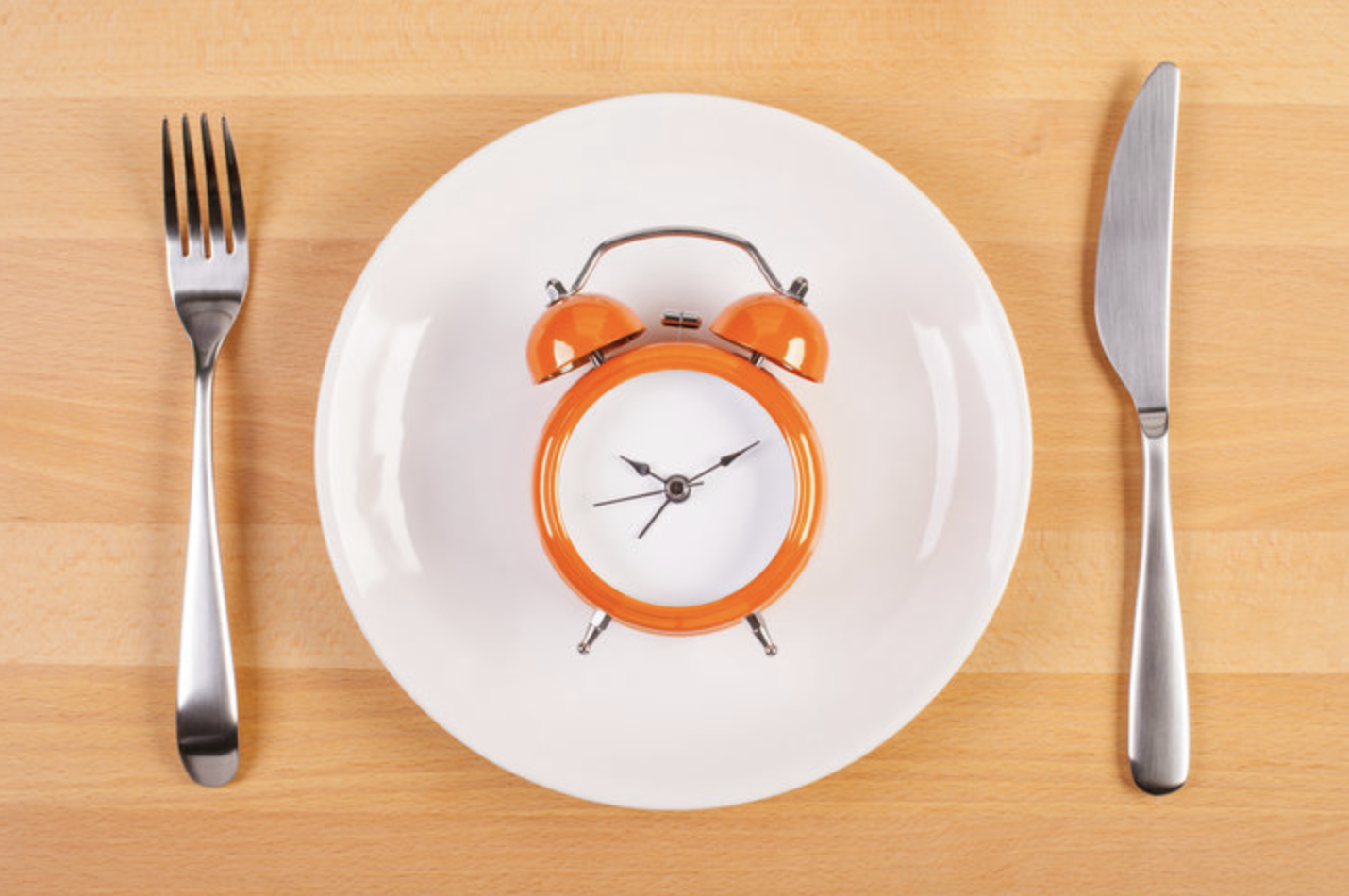You’ve likely heard of intermittent fasting and it’s effect it has on weight loss. While it can be a useful tool for some, keep in mind it is not some sort of magical method or that it’s an automatic guarantee for weight loss.
As with many other ways of trying to keep calories in check, intermittent fasting has its advantages. It is a simple way to cut out an extra 300+ calories from your diet. It’s also been known to be a great tool for people who struggle with food addiction to better identify when they’re actually hungry versus eating out of habit. However, if at the end of the day you’re eating in a surplus, the time in which you do or don’t eat will have will not make a difference when it comes to your weight loss.
The reason why people claim to have success with intermittent fasting isn’t because they starve themselves for 16+ hours a day and then binge on chocolate chip cookies and pizza. It’s because they’re using it as a tool to keep their calories and macros in check while still eating healthy and within their goals during their “feeding hours.”
In general, intermittent fasting should never be thought of as a diet, but more of a patterned way of eating. It’s great for people who:
- Hate breakfast or usually skip it
- Prefer to work out in the morning on an empty stomach
- Are short on time in the morning and rarely have time for breakfast
- People who struggle with food addiction and are trying to break certain habits
For these individuals, intermittent fasting can be a great tool to let them stay on track with their day and their diet. It saves them time, calories and that feeling that they “have to” eat, even when they’re not hungry.
That being said, there are many people out there who can suffer more harm than good from intermittent fasting. These people include:
- Those with high-stress lives or who produced too much cortisol
- Those with diabetes or severe hypoglycemia
- Those who train hard 6-7 days a week or do 2/day workouts
- Those looking for major muscle gains
For these individuals, intermittent fasting can actually cause them to be lightheaded, dizzy, or ill. It can make it too difficult to achieve specific macros or a high enough protein count. It can also deter their muscle gain and in some cases, slow down muscle repair during recovery.
So what’s the rule for intermittent fasting then? Should you do it or skip it? The truth is that there isn’t one rule. What I can say is this. DO NOT use intermittent fasting as a reason to binge on total crap food. At the end of the day, calories in versus calories out will always be the deterrent or the success of your weight loss and will make the biggest impact. Your body does not care if you’re overeating all day or for just a few hours, you will still gain weight if you are eating more than your body is burning. If you’re a healthy individual who eating habits are in check the majority of the time and is looking for an easy way to shave off a few extra calories, or you just hate the thought of breakfast in the morning and intermittent fasting suits your lifestyle, then go for it.
Just keep in mind that your body knows best. And remember, no matter what tool you add to your diet, nothing will compensate for poor eating. Keep your nutrition in check at least 80-90% of the time and you’ll reach your goals, fasting or not.
If you are interested in learning more about reaching your health and fitness goals and what kind of eating habits may work for you, I’m here to help!
Consider a Consultation to get started or my highly acclaimed Kickstarter Plans that has everything you need to jump start your health and fitness!









